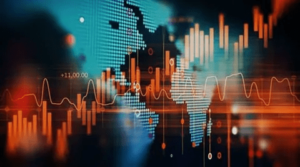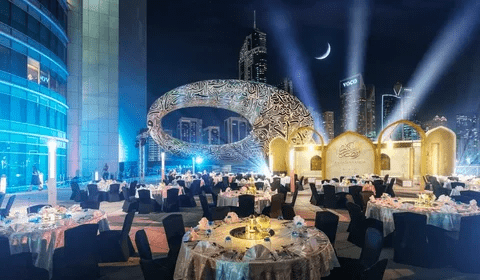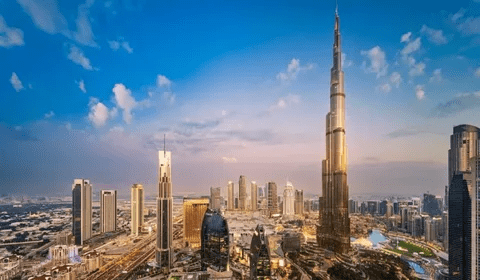Dubai has long been synonymous with luxury, innovation, and unmatched hospitality. With the rapid advancements in artificial intelligence and technology, this vibrant city is taking its tourism industry to unprecedented heights. AI and modern tech tools are enhancing visitor experiences and streamlining operations for businesses across the sector. Let’s delve into how these developments transform Dubai into a futuristic tourism hub.
Dubai’s vision of becoming a global smart city drives its leadership in tech-powered tourism. The city has adopted cutting-edge technologies such as virtual reality (VR) and augmented reality (AR) to create immersive travel experiences. Tourists can now take virtual tours of iconic landmarks like the Burj Khalifa or the Dubai Mall before visiting, helping them plan their trips better.
AI also plays a significant role in understanding tourist behavior. Data analytics powered by AI helps businesses predict trends and tailor services accordingly. For instance, by analyzing search queries and booking patterns, hotels and tour operators can offer customized packages that cater to specific preferences.
Why Technology is Revolutionizing Dubai’s Tourism Industry?
Dubai’s commitment to innovation makes it the perfect testing ground for technological advancements. AI and technology are reshaping how tourists explore the city. From AI-powered chatbots that provide personalized travel advice to smart transportation systems that make getting around seamless, technology is redefining the visitor journey.
One standout example is the use of AI in customer service. Hotels and airlines in Dubai now deploy virtual assistants to handle inquiries, bookings, and even concierge services. This ensures quicker responses and enhances customer satisfaction. Moreover, the integration of blockchain for secure transactions has made travel-related payments more transparent and reliable.
How AI is Elevating Visitor Experiences?
The implementation of AI in Dubai’s tourism sector is all about enhancing convenience and creating memorable moments for visitors. Smart city initiatives such as AI-driven transportation systems ensure that tourists can navigate the city efficiently. Self-driving taxis, powered by advanced AI, are not just futuristic but also incredibly practical for visitors exploring Dubai.
AI also contributes to safety, a crucial aspect of tourism. Facial recognition technology at airports speeds up immigration processes, allowing travelers to enter Dubai hassle-free. Additionally, smart surveillance systems powered by AI ensure that public spaces remain secure, providing peace of mind to both tourists and residents.
The Role of Smart Technology in Hospitality

Dubai’s hospitality industry is embracing smart technology to stay ahead of the curve. Hotels equipped with AI-enabled room assistants provide a level of convenience that was unimaginable a few years ago. Guests can control lighting, temperature, and even entertainment systems with voice commands.
Moreover, robotic service in some hotels ensures efficiency and novelty. From delivering room service to offering concierge recommendations, robots are seamlessly integrating into the hospitality experience. Such innovations set Dubai apart as a global leader in futuristic tourism.
Sustainability is becoming increasingly important in Dubai’s tourism sector, and AI is playing a vital role in achieving green goals. Smart technologies are helping businesses reduce their carbon footprint. For example, energy-efficient buildings use AI to monitor and optimize energy usage.
AI-powered waste management systems ensure that tourist-heavy areas remain clean and sustainable. These initiatives not only preserve Dubai’s beauty but also appeal to eco-conscious travelers, making Dubai a top choice for responsible tourism.
What Travelers Can Expect in the Future?
The integration of AI and technology in Dubai’s tourism sector shows no signs of slowing down. Tourists can look forward to even more personalized experiences, thanks to advancements in AI algorithms. Imagine AI planning your entire trip, from booking flights and accommodation to curating activities based on your preferences.
The use of immersive technologies like AR and VR is expected to grow, offering experiences such as virtual shopping in Dubai’s souks or diving into underwater worlds without leaving your hotel room. Such innovations will redefine the way people perceive travel.
Dubai’s adoption of AI and technology is not just about enhancing tourism but also about setting a global benchmark. The city regularly hosts tech summits and innovation expos, showcasing its commitment to staying ahead of the curve.
Dubai’s ability to merge luxury with technology attracts millions of visitors every year. Whether it’s the smart palm trees offering Wi-Fi in public spaces or AI-powered translation services that bridge language barriers, the city is setting an example for the world to follow.
The Synergy Between AI and Human Touch

While AI and technology are revolutionizing tourism, Dubai understands the importance of the human touch. The city seamlessly blends tech innovations with traditional hospitality, ensuring visitors enjoy a balanced experience.
For example, while AI can assist with travel plans, the warmth of Dubai’s people ensures that tourists feel welcome. This synergy between technology and human interaction creates a unique experience that sets Dubai apart from other destinations.
Tour operators in Dubai are leveraging AI to stay competitive in a rapidly evolving market. AI tools allow them to analyze large volumes of data, enabling better decision-making. From optimizing tour schedules to predicting demand, these insights ensure a smoother experience for tourists.
AI also helps in marketing, as personalized advertisements can be created based on a tourist’s preferences and browsing behavior. This targeted approach increases the chances of bookings and enhances customer satisfaction.
The Broader Impact on Dubai’s Economy
The integration of AI and technology in the tourism sector has a ripple effect on Dubai’s economy. The city attracts tech-savvy tourists who spend more on innovative experiences. Furthermore, the adoption of technology creates job opportunities in sectors like AI development, robotics, and data analytics.
Dubai’s forward-thinking approach ensures that the tourism sector remains a significant contributor to its GDP. By investing in technology, the city is future-proofing its economy and maintaining its position as a global tourism hub.
Dubai’s embrace of AI and technology is a testament to its innovative spirit. By enhancing visitor experiences and streamlining operations, these advancements are reshaping the tourism sector. Tourists visiting Dubai can expect unparalleled convenience, safety, and luxury, making the city a beacon of tech-powered tourism. The impact of AI and technology in Dubai’s tourism industry is a fascinating glimpse into the future of travel.
Pros and Cons of AI and Technology in Dubai’s Tourism Sector
Pros:
- AI and technology have greatly improved the tourism experience in Dubai, making travel easier and more enjoyable. One of the key benefits is the personalization of services. AI can help create customized travel plans, offering suggestions based on individual preferences. This makes planning a trip smoother, whether it’s booking hotels, activities, or transportation.
- Another positive aspect is the efficiency of operations. Technology like AI-powered chatbots allows for quick responses to tourist inquiries, while smart transportation systems like self-driving cars make it easier for visitors to explore the city without hassle.
- Dubai’s safety measures have also been improved by AI, with technologies like facial recognition at airports speeding up the immigration process and ensuring better security in public places. This makes tourists feel safer, which is essential for attracting more visitors.
- Moreover, Dubai’s sustainability efforts are supported by technology. AI helps manage resources like energy and waste more efficiently, reducing the city’s environmental footprint. This is important for tourists who are environmentally conscious and prefer to visit eco-friendly destinations.
Cons:
- While the advantages are clear, there are some drawbacks to the growing use of AI and technology in Dubai’s tourism sector. One concern is the loss of personal interaction. As more services are automated, visitors may miss the warmth and personal touch that human interactions provide. For some tourists, this can make the experience feel less welcoming.
- Another downside is the cost. The advanced technologies that power AI and smart systems can be expensive to implement and maintain. This can lead to higher prices for tourists, particularly in hotels and attractions that rely heavily on these technologies.
- Privacy concerns are also a potential issue. With the use of AI and facial recognition, there are worries about how personal data is collected and used. Tourists may feel uncomfortable knowing that their information is being constantly tracked, even if it’s to enhance their experience.
- Lastly, while AI and technology improve efficiency, they can also lead to job displacement. As robots and automated systems take over certain roles, there is the potential for fewer job opportunities for people in the tourism industry. This can impact local employment, especially in areas where human workers are replaced by machines.
- Overall, while the benefits of AI and technology in Dubai’s tourism sector are impressive, it’s important to consider the challenges they bring, particularly in terms of personal experience, costs, privacy, and employment.
FAQ’s
Q: How is AI improving tourism in Dubai?
AI is improving tourism in Dubai by offering personalized experiences for visitors. AI-powered systems can suggest activities, hotels, and restaurants based on a tourist’s preferences. It also helps make services faster, such as using chatbots for quick responses to customer queries or facial recognition for easier airport check-ins.
Q: What are the benefits of technology in Dubai’s tourism?
Technology makes travel in Dubai more efficient and enjoyable. Smart transportation systems like self-driving cars and AI-powered concierge services provide visitors with a more convenient experience. It also makes planning easier, with tools like virtual reality that let you explore places before you visit them. Technology helps make the city safer and more sustainable.
Q: Are there any downsides to the use of technology in tourism?
Yes, while technology brings many benefits, it also has some downsides. The use of AI can reduce personal interactions, which some visitors may miss. Implementing advanced technologies can be expensive, which could lead to higher costs for tourists. There are also privacy concerns, as technology often collects personal data, and some jobs may be replaced by automation.
Q: How is AI making Dubai safer for tourists?
AI enhances safety in Dubai by using technology like facial recognition at airports to speed up immigration processes. It also helps with smart surveillance systems in public places, ensuring that tourists can enjoy their visit with peace of mind.
Q: Is technology making Dubai more eco-friendly?
Yes, technology is helping Dubai become more eco-friendly. AI and smart systems manage resources like energy and waste more efficiently, reducing the city’s environmental impact. This makes the city more attractive to tourists who care about sustainability.













Leave a Reply